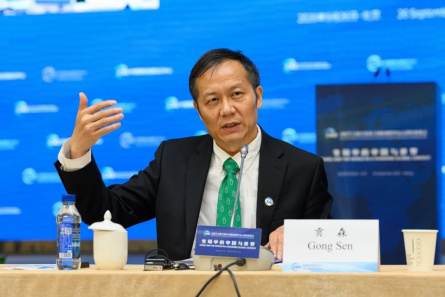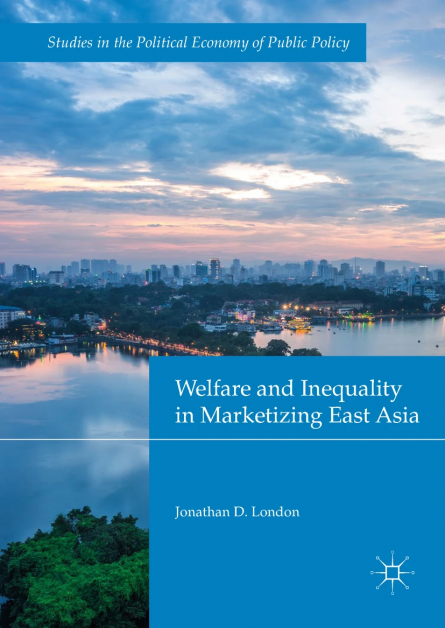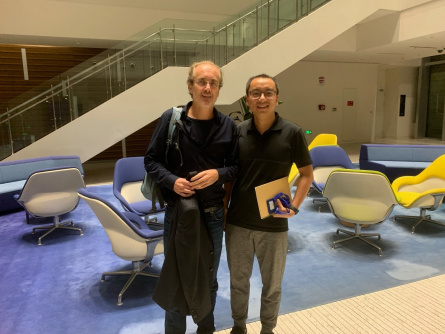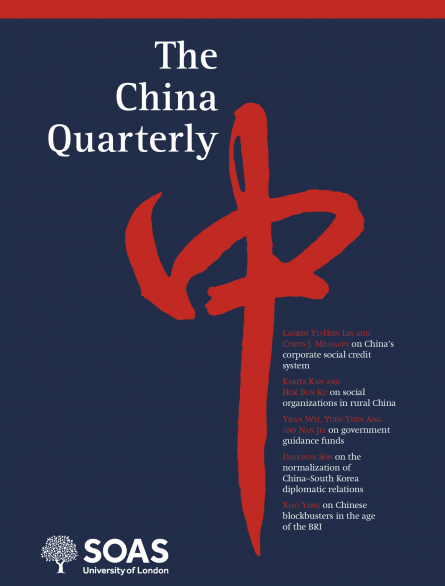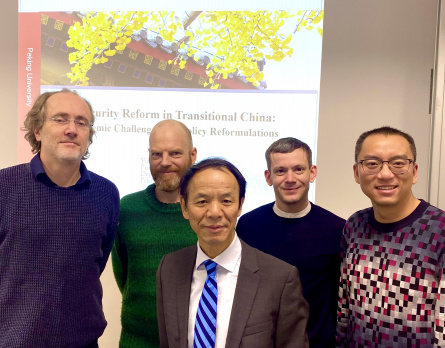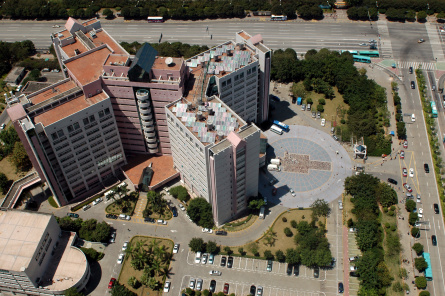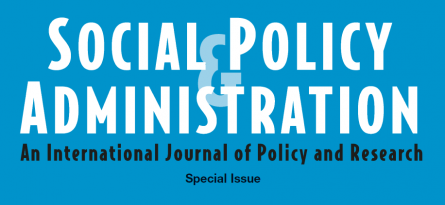Jour Fixe with Prof. Gong Sen on 08.07.2025To conclude the Jour Fixe lecture series in the summer semester, Prof. Gong Sen from Zhejiang University in China was a guest at the Collaborative Research Centre 1342 on 08.07.2025. In his lecture on "Major Factors for the Good Practices of AI R&D and Wider Application of AI in Hangzhou, China", he presented the city of Hangzhou as an innovation hub in the field of artificial intelligence and discussed the impact on the health and education sector with the participants.
Abstract:
Hangzhou City has become an innovation hub in AI research and development recently because of the emerging "six little dragons" including Deepseek. There have been many accounts for the success of Hangzhou compared to many other cities in China and beyond. There have been also many debates about the major factors for its success, which include the role of the state comparing with the market, and the role of locally-trained talents comparing to talents back from overseas.
Besides R&D, Hangzhou City has also been a pioneer in AI application in China. The speaker is going to review the rich practices in employment and education sector, and examine the impacts and insights for others. In terms of employment, the speaker is going to showcase the new jobs created by AI such as labelling and the existing jobs replaced by AI such as general health practitioners. As for the education sector, the speaker is going to introduce the pilots of AI application conducted by the staff members of Zhejiang University in the education sector at various levels from primary school to higher education, and from micro-curriculum for social science students through minor course for physical science students to major course for computer science students.
In comparison with other innovation hubs, the speakers is going to develop a framework to explain the good practices of Hangzhou City, Zhejiang Province, as well as to provide some prospect for the future.
Gong Sen, Ph.D., is a special hired Professor as a leading scholar in social science at the School of Public Affairs of Zhejiang University, China. He received his PhD in Social Policy in Sheffield University, UK. He is also the Director of the Centre for International Studies on Development and Governance Research Centre (CiSDG) at Zhejiang and Zhejiang University.
His main research interests include social security, healthcare, employment, and other social policies as well as development. In recent years, he is also working on a number of projects on international development and sustainable development. He is the Lead principal investigator of over 40 major national and international projects funded by UN agencies and World Bank, international development agencies such as DFID and international NGOs such as Save the Children. He has received numerous awards for excellent research at provincial or ministerial levels. He has published over 10 books, including "Improving Social Development, Rebuilding Social Order," "International Comparison of Welfare Systems and Social Policies," and "Focusing on People's Livelihood: Promoting Inclusive Growth Social Policy." He has published more than one hundred research articles in peer reviewed journals in English and in Chinese. He has over 30 policy briefs on development being accepted by the governments at central and local levels in China.
He is a Co-Chief Editor of the Asian Review of Political Economy, a board member of the Guangdong Qianhai International Affairs Research Institute. He also serves as Chairman of the Social-Legal Committee of the Democratic Progressive Party Central in China.
Prior to coming to Zhejiang University, he worked in the Development Research Centre (DRC) of the State Council as a senior researcher at DDG level for 3-4 research departments and institutes. Throughout his career, he has served on numerous advisory committees and boards, such as for United Nations Committee for Development Policy, the Ministry of Human Resources and Social Security, the Ministry of Civil Affairs, and the Ministry of Health in China. Because of his important contribution to China’s social policy, he is now an expert receiving the special allowance from the State Council which is an honour for leading experts in the country.
Contact:Prof. Dr. Tobias ten BrinkCRC 1342: Global Dynamics of Social Policy, Research IV and China Global Center
Campus Ring 1
28759 Bremen
Phone: +49 421 200-3382
E-Mail:
ttenbrink@constructor.university




